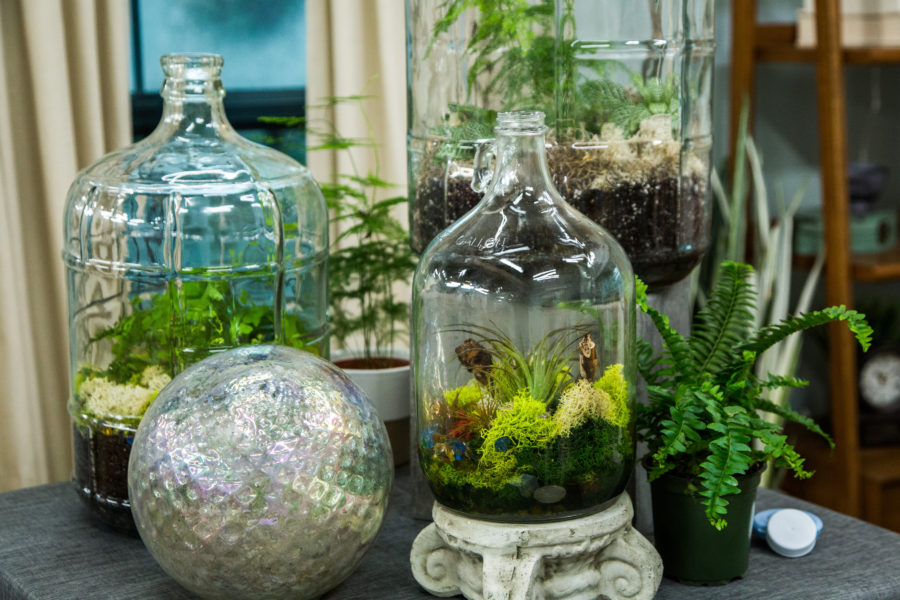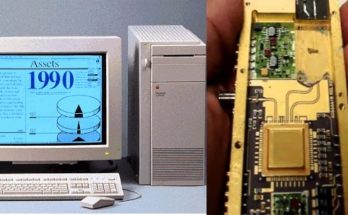Do you know anyone who wants a job as a Chocolate taster?
The requirements for the job? Just one, according to the company: “A passion for confectionary.” They’re looking for someone to pay $14 per hour to taste and review chocolate. They offer a relaxed set of options for what hours of the week their employee will work. They currently want to find 11 Chocolate tasters for this round of hiring, but they’ve hired Chocolate tasters in years past as well. Competition might be steep, though, as they reportedly received over 1500 applications in one day.
The company is Mondelez International, who have Cadbury Chocolates, Orea, belVita, Milka, and Trident. Oh, and they’re also hiring a Chocolate and Cocoa Beverage Taster.
British grandfather created an ecosystem in a bottle garden he hasn't watered in more than 46 years
One of the big complaints I hear from plant owners is that it can be a challenge to remember to water their plants, and with some plants, all it takes is one missed watering and it’s gone (especially with pickier plants like orchids). We had to quit buying plants for my mother because of this – we nicknamed her the ‘serial plant killer’.
Luckily, even if you don’t have a green thumb, you can still enjoy the benefits of having indoor plants. It just takes a little more creativity up front. David Latimer, an English native, has kept the same plant alive in an enclosed ecosystem since 1972.
The spiderwort sprout Mr. Latimer used was given enough water to foster its own ecosystem, and with sunshine pouring through its glass case, it has no trouble composting and creating carbon dioxide. It’s a fascinating study of how the Earth works, and would be an excellent project for a science classroom, a family gardening experiment, or even as a gift to your favorite botanist.
If you’d like to learn more and perhaps build your own sealed bottle garden, you can get inspired by searching out and reading about David Latimer.
What's good and what's bad about America right now - Jamie Dimon, CEO of JPMorgan Chase
At the recent Aspen summit, CEO of JPMorgan Chase, a company that has seen a massive increase in confidence (and stock value, which has tripled since the recent financial crisis, doubled since Dimon started in his current position) in recent years, commented on what was strong and what was weak in the current America. Here’s a summary.
The good:
- The economy is booming, with no major potholes
- Wages increasing
- People coming back into work force
- Houses in short supply (a plus for the economy)
- Credit on financial institutions balance sheets is pristine
- Companies have plenty of money
- Tax reform is going to help with retention and reinvestment of capital in America
The bad:
- Uncompetitive business taxes – this has been fixed, though, he noted
- Infrastructure is poor – “We put a man on the moon in 8 years. We can’t fix a bridge in 12 years now.”
- Inner city schools “simply don’t work and we’re relegating generations of minorities and poor kids to poverty.”
- Litigation system “is becoming increasingly capricious.”
- Small business formation (small business, middle market, large corporation all effected) is less than it’s ever been in a major American recovery, as a result of “regulation” and “paperwork,” or bureaucracy and sinecure – a form of corruption in the American system to keep jobs for certain people. (Dimon noted that he wasn’t 100% sure of the particulars of this point, but made it clear he considered it something important to look at.)
- Immigration reform not good enough – “If we had proper immigration reform it would help us grow .2% per year. 300,000 kids get education here and go back home, and then our American universities brag about it like what a good job they’re doing ‘exporting.'”
[somryv url=”CxJXO352x-g” size=”large” align=”center”]
 " >
" >



